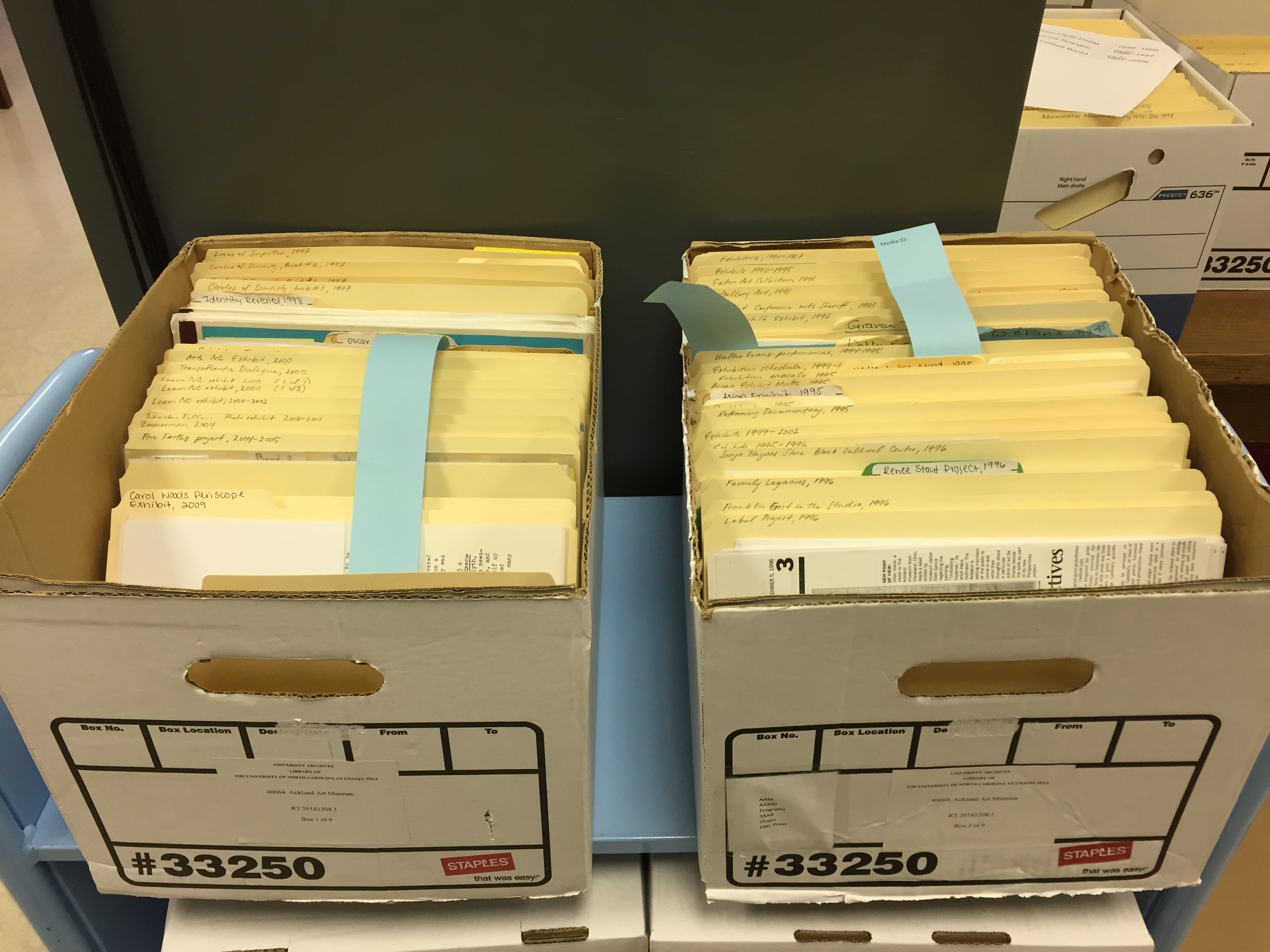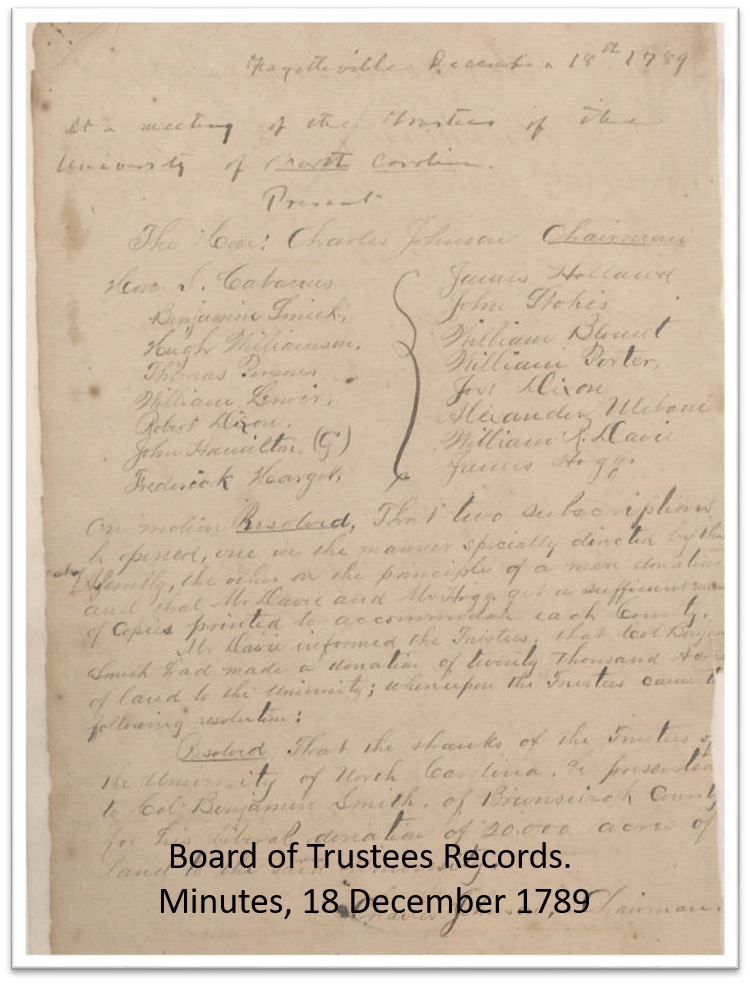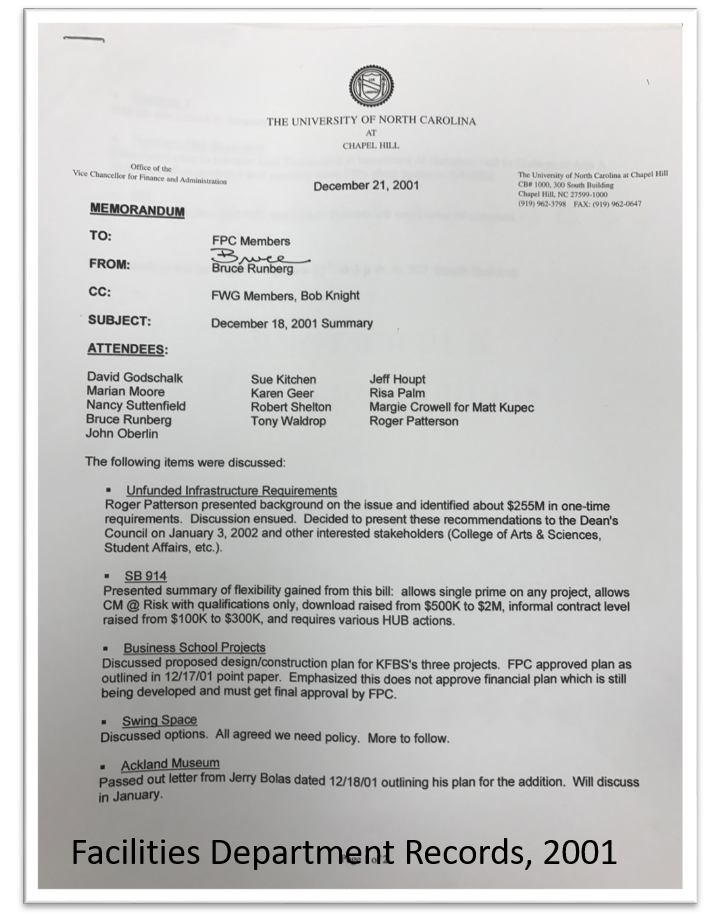Records Management at UNC-Chapel Hill: Getting Started
RM Presentations and Resources
-
Records Management 101Presentation slides from training sessions in 2023.
-
Remote Records Management TipsSuggestions for how to create a work from home digital records management project.
What is Records Management?
ISO standard 15489: 2016 defines Records Management as the field of management responsible for the efficient and systematic control of the creation, receipt, maintenance, use and disposition of records, including the processes for capturing and maintaining evidence of and information about business activities and transactions in the form of records.
Your Responsibility
You are responsible for records you create or maintain. You should organize, review, and manage these records in accordance with the UNC-Chapel Hill General Records Retention and Disposition Schedule.
Managing Records at Carolina
As employees of the University of North Carolina at Chapel Hill we all create records in our daily work. We all have a shared responsibility to manage the records appropriately as directed by state and federal regulations for public records. The University Archives maintains the University's Records Retention Schedule and strives to empower all employees to confidently and efficiently manage records.
If you're trying to figure out what to do with records — old or new — in your office, this guide is the place to start. This guide contains information and tips for UNC-Chapel Hill employees about records management requirements and procedures.
If you would like to schedule a consultation, please email us [archives@unc.edu]. We're happy to come to your office and provide customized advice on how to organize records and prepare records for disposition.


What is a record?
Records document the various functions of an office or department. Records can take many formats including, but not limited to, paper documents, digital files, websites, email, or video. We review records for retention and disposition based on informational content, not format.



Public Records
There are two North Carolina laws that address public records, and as a public university we are subject to them. The first is North Carolina General Statue 132, known as the Public Records Law. This statute defines public records and clarifies that public records belong to the people of North Carolina.
The second law that affects public records is North Carolina General Statue 121, known as the Archives and History Act. This statute defines the duties of the Department of Natural and Cultural Resources. This act also regulates the destruction of public records. For the University of North Carolina at Chapel Hill, the Department of Natural and Cultural Resources ceded this authority to the University Archives and Records Management Services. This is what gives us the responsibility to assist the University with records management and maintain the General Records Retention Schedule.
When it comes to public records, the word "public" doesn't necessarily mean open to the public. The word "public" in this context has to do with doing the public’s business or the business of government. According to state and federal statutes, health records, personnel records and student records have special confidential classifications and must be handled accordingly. If you have questions or concerns about public records, contact the UNC-Chapel Hill Public Records Office.
Key Concepts
- Record copy – original or official copy of a record that is retained for legal, operational or historical purpose. Additional copies are considered reference copies.
- Reference value – disposition instruction to destroy when reference value ends. Typically used regarding reference copies or transitory record types.
- Record Custody – the office of record that creates or receives a record is responsible for retention requirements
- Record Series – group of records that are created, received, or used in the same activity
- Disposition Instructions – how long you must keep a record and what to do after that period ends
- Transitory Records – records that have little or no documentary or evidential value and need not be set aside for future use.
See pages iv-viii and A-2 to A-4 in the Retention Schedule document for more information.
The General Records Schedule
As of Spring 2021, UNC at Chapel Hill and the UNC System Office will use the General Records Retention and Disposition Schedule for the University of North Carolina system. This retention schedule is administered by the NC Department of Natural and Cultural Resources, Division of Archives and Records.
The General Records Retention and Disposition Schedule provides instructions on how long records need to be retained for legal, fiscal, and historical purposes. The current Retention Schedule supersedes all previous records retention and disposition schedules that may have been created for individual units; and serves all administrative, academic, and health affairs units of the University.
If you think a record type is missing from the schedule or if you've found an error in the schedule, please contact University Archives.